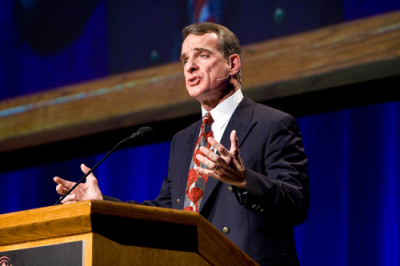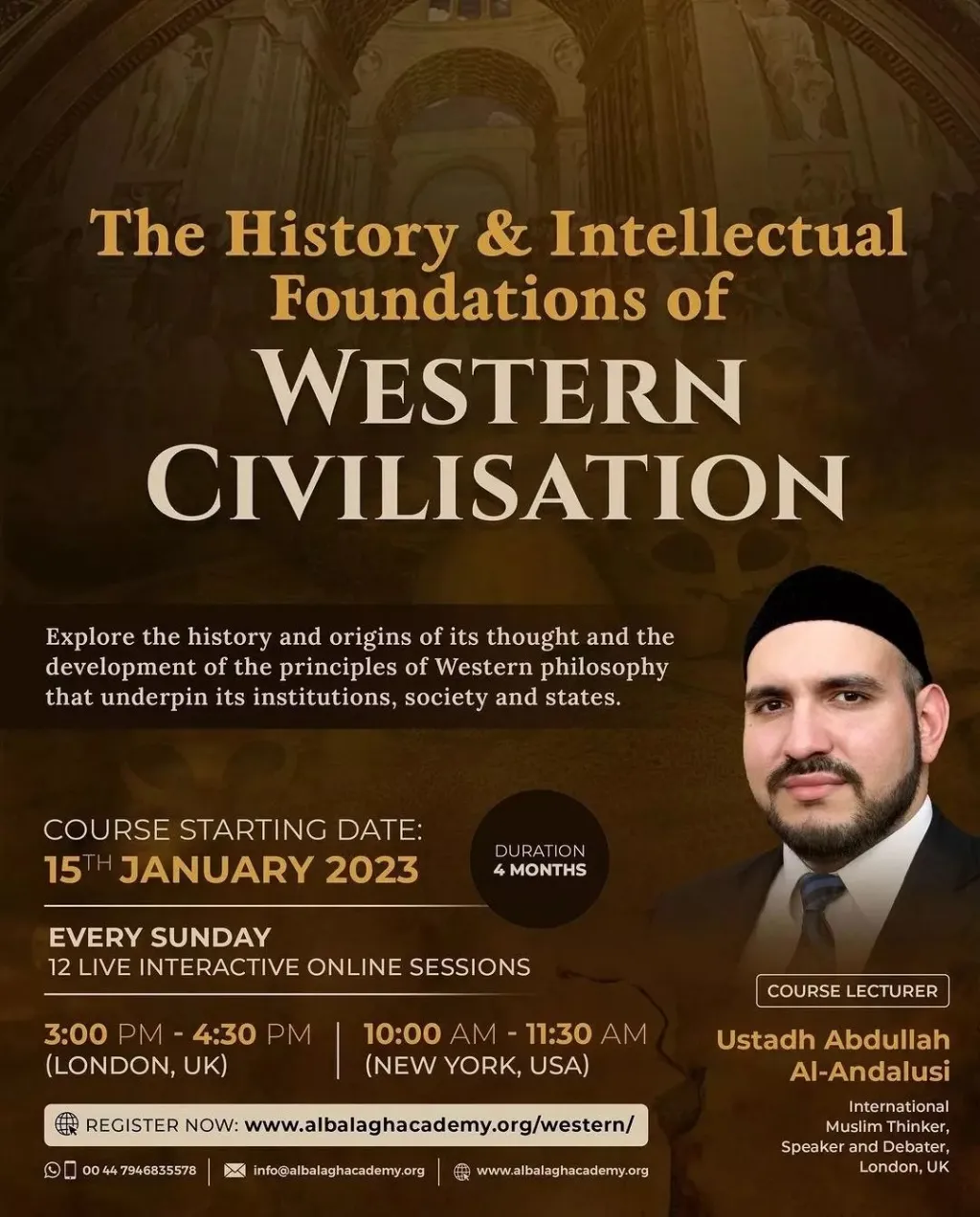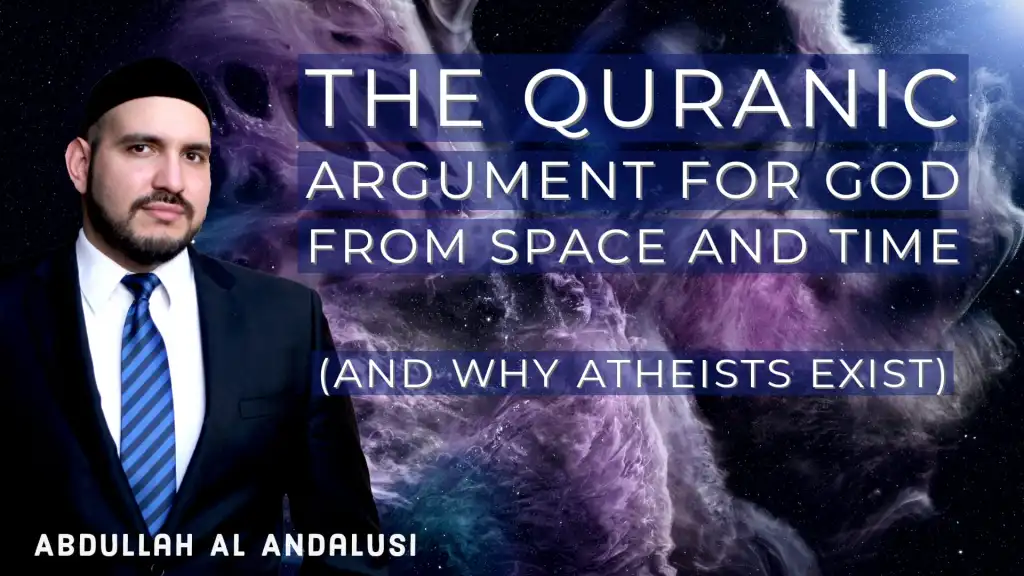‘As the greatest conceivable being, God must be perfect. Now a perfect being must be a loving being. For love is a moral perfection; it is better for a person to be loving rather than unloving. God therefore must be a perfectly loving being. Now it is of the very nature of love to give oneself away. Love reaches out to another person rather than centering wholly in oneself. So if God is perfectly loving by His very nature, He must be giving Himself in love to another. But who is that other? It cannot be any created person, since creation is a result of God’s free will, not a result of His nature. It belongs to God’s very essence to love, but it does not belong to His essence to create. So we can imagine a possible world in which God is perfectly loving and yet no created persons exist. So created persons cannot sufficiently explain whom God loves. Moreover, contemporary. cosmology makes it plausible that created persons have not always existed. But God is eternally loving. So again created persons alone are insufficient to account for God’s being perfectly loving. It therefore follows that the other to whom God’s love is necessarily directed must be internal to God Himself.
In other words, God is not a single, isolated person, as unitarian forms of theism like Islam hold; rather God is a plurality of persons, as the Christian doctrine of the Trinity affirms. On the unitarian view God is a person who does not give Himself away essentially in love for another; He is focused essentially only on Himself. Hence, He cannot be the most perfect being. But on the Christian view, God is a triad of persons in eternal, self-giving love relationships. Thus, since God is essentially loving, the doctrine of the Trinity is more plausible than any unitarian doctrine of God.As the greatest conceivable being, God must be perfect. Now a perfect being must be a loving being. For love is a moral perfection; it is better for a person to be loving rather than unloving. God therefore must be a perfectly loving being. Now it is of the very nature of love to give oneself away. Love reaches out to another person rather than centering wholly in oneself. So if God is perfectly loving by His very nature, He must be giving Himself in love to another. But who is that other? It cannot be any created person, since creation is a result of God’s free will, not a result of His nature. It belongs to God’s very essence to love, but it does not belong to His essence to create. So we can imagine a possible world in which God is perfectly loving and yet no created persons exist. So created persons cannot sufficiently explain whom God loves. Moreover, contemporary. cosmology makes it plausible that created persons have not always existed. But God is eternally loving. So again created persons alone are insufficient to account for God’s being perfectly loving. It therefore follows that the other to whom God’s love is necessarily directed must be internal to God Himself.
In other words, God is not a single, isolated person, as Unitarian forms of theism like Islam hold; rather God is a plurality of persons, as the Christian doctrine of the Trinity affirms. On the Unitarian view God is a person who does not give Himself away essentially in love for another; He is focused essentially only on Himself. Hence, He cannot be the most perfect being. But on the Christian view, God is a triad of persons in eternal, self-giving love relationships. Thus, since God is essentially loving, the doctrine of the Trinity is more plausible than any Unitarian doctrine of God’.
– Dr William Lane Craig
“As the greatest conceivable being, God must be perfect. Now a perfect being must be a loving being. For love is a moral perfection; it is better for a person to be loving rather than unloving. God therefore must be a perfectly loving being.” – Dr William Lane Craig
William starts off by asserting that God is ‘perfect’ without explaining what ‘Perfection’ means. He then jumps to asserting that a perfect being must be a loving being. The ‘bridge’ he used to connect both ideas was ‘love is a moral perfection’. Here lies the first fallacy of his argument.
Merely possessing love, is not a moral perfection in of itself, because love is just an emotion and even a greedy person possesses love (i.e. love for money). Furthermore, love only becomes incumbent on us because we are created, and our creator ordained upon us that we should love each other as a worship of Him. Since God does not worship anything (since he is God, the only), he is not subject to morals, but rather, he defines the morals which others must follow according to his will.
–
Furthermore, God is no more ‘likely’ to possess the attribute of ‘loving’ as he would possess the attribute of hating.
How does Dr Craig know that God is not the perfect hating being? Dr Craig would probably retort ‘but what need would God have to hate if he has no rival?’, thus the same could be said of love.
–
The Love between people is merely the manifestation of the human species bonding instinct, which normally moves us to have compassion with our fellow human being (and anthropomorphised pet!). God is not part of a genus of species that requires him to possess an instinct which bonds him with other gods – this is because God is unique and the only one, and more importantly, he is not created.
–
So on pure rational observation, we cannot say God possesses love, since we cannot know God’s chosen characteristics devoid of observing them directly ourselves, thus we must rely on Revelation to inform us. If we accept (what we believe to be) revelation, then revelation tells us, both the Torah, Bible and the Quran, that God loves good deeds and sincere worshippers and he hates sins and iniquitous people. This is because there cannot be an equal to God, but there can be those who possess will, who make created things ‘equal’ to God. Thus God loves those who affirm him as alone and unique – the absolute one, and God hates those who assign partners to himself. Finally, there lies no reference to him loving himself anywhere in the Torah, Gospel or Quran, thus this argument is moot from its first premise. In conclusion, we cannot make assumptions about God’s characteristics without revelation.
–
“Now it is of the very nature of love to give oneself away. Love reaches out to another person rather than centering wholly in oneself. So if God is perfectly loving by His very nature, He must be giving Himself in love to another” – Dr William Lane Craig
–
Even though the premise of this argument is flawed, we shall humour it and critique the next premise it sprouts. William here now defines the emotion of love as ‘very nature of love to give oneself away. Love reaches out to another person rather than centring wholly in oneself’. Mr Craig now compounds his original logical fallacy with a psychological inaccuracy. Love is based (like most human emotions) around the self -thus an individual seeks to be loved rather than just ‘give themselves away’. If Mr Craig is suggesting that love’s nature is only to ‘give oneself away’, then it should be sufficient for someone to merely love a girl he has a crush on and not require to have it reciprocated, perhaps Mr Craig denies the existence of unrequited love?
–
Furthermore, to say that God possesses an attribute that “by His very nature, He must be giving Himself in love to another.”, is to claim that God is IN NEED of something else other than his (absolutely indivisible) self. God cannot be in need to do anything, as he is uncreated and independent. Thus he possesses no innate desires, instincts or motivations that CAUSE him to do actions. For if he were to possess instincts, natures or desires that are intrinsically part of himself, the question would arise as to ‘who created those causes that cause the first cause (i.e. God)?’
–
The correct and rational conclusion, is that God possesses no needs or any kind, because he has no ‘nature’ or instincts that motivate him to do actions (i.e. are a first cause before himself). Thus God is not a creature which is moved by its own nature; rather God does not have a defined nature, since no one defined him. But rather, he defines his will by whatever he pleases.
–
Thus, both of Dr Craig’s logical premises have been blown out of the water, but we shall humour his next premises still.
“But who is that other? It cannot be any created person, since creation is a result of God’s free will, not a result of His nature. It belongs to God’s very essence to love, but it does not belong to His essence to create.” – Dr William Lane Craig
To love and to create are both actions. Why is Dr Craig saying that God’s ‘desire’ to create is any less part of his nature than his ‘desire’ to love? Furthermore, does God not have a choice when it comes to who he loves? Is God COMPELLED to love? Is love then stronger than God, of whom God is merely just a servant?! No, God does whatever he wills under no compulsion, his act of loving is just an action, which is not more different than his act of creation.
–
“So we can imagine a possible world in which God is perfectly loving and yet no created persons exist. So created persons cannot sufficiently explain whom God loves. Moreover, contemporary. cosmology makes it plausible that created persons have not always existed. But God is eternally loving. So again created persons alone are insufficient to account for God’s being perfectly loving. It therefore follows that the other to whom God’s love is necessarily directed must be internal to God Himself.” – Dr William Lane Craig
–
The false premises just pour of this statement by William. Firstly, God knew all of his creation before he created it, would it be not possible for God to love his creation from all eternity even though it hadn’t existed yet? Surely if William had read his Old testament, he would have found the verse where God is reported to have said to Prophet Jeremiah:
–
‘Before I formed you in the womb I knew you, and before you were born I consecrated you; I have appointed you a prophet to the nations.’
Jeremiah 1:5
–
‘When I (David) was woven together in the depths of the earth, Your eyes saw my unformed body. All the days ordained for me were written in Your book before one of them came to be.’
Psalm 139:13-16
–
God exists outside time and space, for him, there is no before, present or after, so he had always loved his deserved amongst creation and always hated the undeserving amongst his creation. How narrow of Dr Craig to have limited God’s knowledge and timelessness so.
–
The second problem which arises for Dr Craig’s statement is if God is always the ‘perfectly loving’, and loved before he initiated creation, then was God always ‘The creator’? Was there a point where he was not the creator? Can he change his roles over time? Is he even subject to change, or time for that matter?! To say God is limited in his actions, perceptions or roles by time is to ensnare your concept of God in time. God was always the ‘loving’ for the same reason he was always the ‘creator’, because of his foreknowledge and in-contingent potential ‘before’ the existence of creation.
Furthermore, Craig’s statement: “It therefore follows that the other to whom God’s love is necessarily directed must be INTERNAL to God HIMSELF.” contradicts his early statement regarding his definition of love: “Now it is of the very nature of love to give oneself away. Love reaches out to ANOTHER PERSON rather than centring wholly in ONESELF. So if God is perfectly loving by His very nature, He must be giving HIMSELF in love to ANOTHER.”
–
If Love requires another, then God cannot love himself, rather he requires another, who according to Dr Craig, must be eternal in order to ‘keep up’. Thus what we have arrived at is the best argument for polytheism I have ever heard (‘best’ being a relative term, also employed in the phrase ‘best of the worst’). For what Dr Craig has unwittingly proposed, is that there must exist an eternal being, external to God, whom God ‘needs’ to love. If William were to say that God can love himself, then his first basis, that their must be ‘another’ for God to ‘give himself to’, is effectively undermined.
–
Unfortunately for William, inconsistency within his own argument makes for a very poor argument. This is only made worse when the implications of his argument are not only inconsistent with reason, but are a poor attempt to defend an inconsistent doctrine, which itself is based upon an inconsistent interpretation of an internally inconsistent book derived from originally inconsistent sources. The only consistency present in all of this matter is its regular inconsistency. But once again let us humour the premises and continue our deliberations with Dr Craig’s conclusion.
–
“In other words, God is not a single, isolated person, as Unitarian forms of theism like Islam hold; rather God is a plurality of persons, as the Christian doctrine of the Trinity affirms. On the Unitarian view God is a person who does not give Himself away essentially in love for another; He is focused essentially only on Himself. Hence, He cannot be the most perfect being. But on the Christian view, God is a triad of persons in eternal, self-giving love relationships. Thus, since God is essentially loving, the doctrine of the Trinity is more plausible than any Unitarian doctrine of God.” – Dr William Lane Craig
–
Dr Craig asserts, self-destructively, that the Unitarian God is unable to ‘give himself away to another’, and therefore ‘cannot be the most perfect being’, and that only a triad of ‘persons’ in a trinity are the ones who can achieve such a ‘giving away to another’
–
The most fundamental problem with this conclusion, is not just that Dr Craig denies god can love his creation before he made it, and not on the nature of what love is, but also, interestingly enough, on who God needs to love. Craig says that if God only loves himself, then he is not a ‘perfect being’, but Craig’s Trinitarian doctrine attests that the trinity’s ‘persons’ are all part of God and not separate from his being, thus they do not constitute a ‘OTHER’ to the being of God. Thus, Dr Craig has fell into his own trap, for if he claims that God loves himself, then he admits that his conception of God too, cannot be the ‘perfect being’ as well. The alternative is for Dr Craig to say the trinity is, in reality, a pantheon of three Gods who love eachother as a relationship between separate beings, and therefore also able to satisfy the (Dr Craig’s) criteria of love, which demands that God love ‘an-OTHER’.
–
If Dr Craig were to argue that there is love between the ‘persons’ of the trinity within God’s being, but not without, then, according to his logic, the persons maybe individually ‘perfectly loving’ to eachother, but collectively as God, they will not be perfectly loving, since God as a ‘whole’ (!) is not loving another, but merely himself. Although I really don’t understand why Craig’s anthropomorphised God cannot be Unitarian and still love itself, when even human beings can love themselves! But I guess Craig’s concept of God cannot do something a ordinary human can.
–
Thus, Craig will have become stuck on the contradictory nature of the Trinity fallacy, and he will have no other recourse than to exclaim that his premise, a God who cannot love himself while at the same time be the ‘perfect loving being’, CAN in fact love himself and still be the ‘perfect loving being’ without any contradictions. Once again, the trinitarians, in their desparate attempt to find explanations for contradictory doctrines, have created more contradictions then they solve. Perhaps Craig shall have to explain that his argument is correct but that the reason we don’t understand it is because it is a great mystery.
How anyone can think Dr Craig’s argument is plausible is indeed a great mystery.
Abdullah al Andalusi








Leave a comment